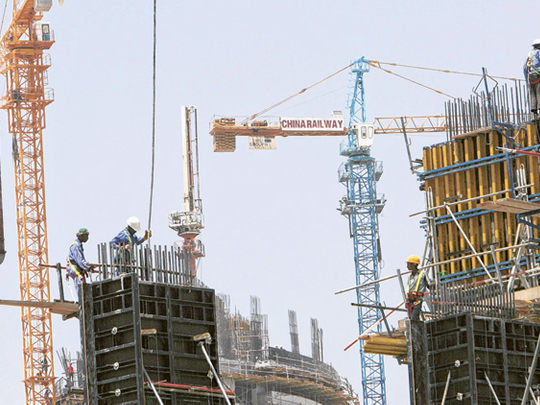
Dubai : Open up the home financing taps and the local real estate market stands a better chance of staging a recovery. This was the prescription that an overwhelming 88 per cent of respondents provided during a survey conducted by Hadef and Partners, the law firm.
And as many as 75 per cent felt aggrieved that financial institutions were not doing their bit to "adequately support" the property market, though respondents do realise this has got to do a lot with the state of the economy. But there are micro issues at play, which have a bearing on investor sentiments.
A major concern expressed in the survey, related to property investors being held criminally liable in the event of payment defaults. "It appears there is a general desire by respondents to remove criminal liability for cheques issued in good faith between private parties," said the Hadef and Partners report.
On this score, some progress can be said to have been made by way of discussions being taken up at the government level. "There have been recent initiatives and discussions in administrative and government circles with a view to reviewing this issue, particularly in respect of real estate matters," the report added.
If something comes out of this exercise to allay the concerns of property investors it would be a major departure from the status quo.
Another initiative that would set a similar tone in investor circles would be opening up the real estate register, maintained by Dubai's Land Department. This may "assist" with the home financing market, the report contended.
"Most such registers are publicly searchable in other jurisdictions, and this would assist banks in assessing the mortgage obligations a potential borrower may be liable for, as well as enabling potential purchasers to verify the ownership status of a potential investment," it added.
"A modest fee could also be charged for this service which would add to current Land Department revenue streams."
Compensation
Another issue of primary importance for investors is a status call on projects that are going ahead and those that will not. In the survey, 87 per cent felt the public announcements of cancellation of projects would assist the market.
"In addition, an overwhelming 90 per cent of respondents believe developers who cancel or place developments on hold, without a definitive completion date should be required to pay loss of profit-related damages to buyers who are not in default.
"Many respondents feel it is unreasonable that developers are entitled to damages from buyers, when it appears developers are not being subjected to similar compensation."
The report reckoned local authorities could do their bit in providing closure for investors caught in projects heading nowhere.
A scheme could, for example, be put in place so that investors and developers in non-viable projects have the option of consolidating partially sold projects into one single project. This would enable the assets of project, which are not going ahead, to be sold off to raise money for the single project that is continuing. This could be administered as a not-for-profit, publicly administered scheme, in which all cash contributed by either developers or investors is aggregated and then divided into respective shares.
The creation of a new law that allows, say, 66 per cent of stakeholders in a project to vote on a proposal by a developer, to delay construction against a compensation package. Such a scheme would need to be open and transparent, for example, by way of offering investors additional financial information to demonstrate the future viability of the project.
Proposal
Investors could then vote on whether to place the development on hold or terminate it and sell it by public auction. Such a proposal would not only give the market time to recover, but also give investors more control over the future of the project in a manner that requires all participants to share the short-term pain of a loss, or collectively take the risk that the development will be viable in the future.












